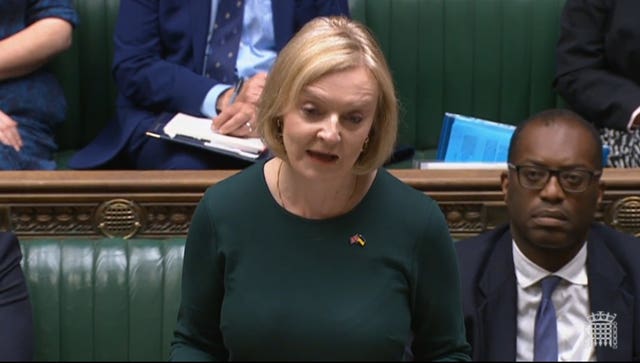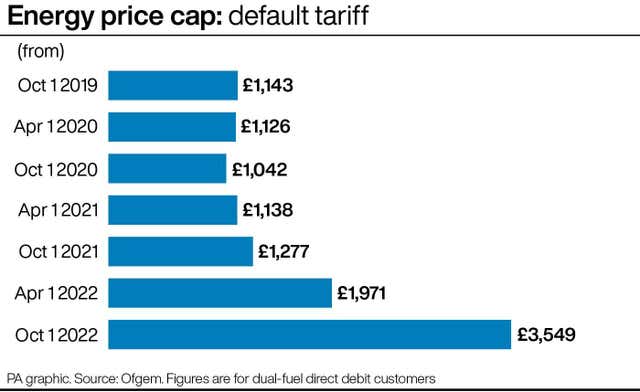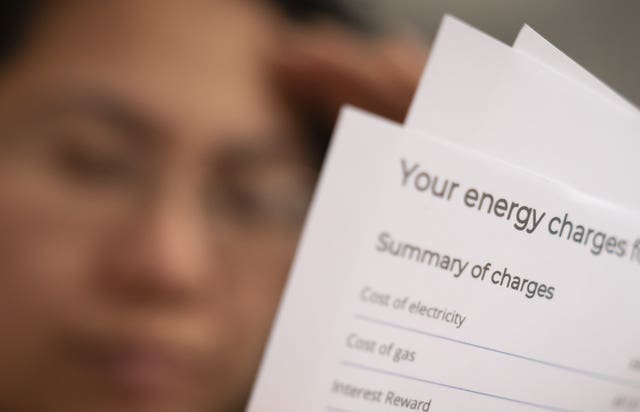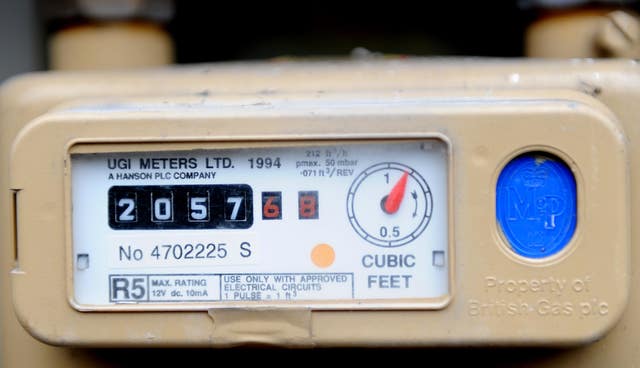What does the Energy Price Guarantee mean for me?
A typical UK household will now pay ‘no more than’ £2,500 a year for their energy for the next two years from October 1.
Prime Minister Liz Truss has announced that the typical UK household will pay no more than £2,500 a year for energy for the next two years from October 1 as the Government responds to soaring gas and electricity prices.
Without intervention, the average household energy bill would have jumped 80% from October 1, from the current £1,971 to £3,549 a year under Ofgem’s latest price cap.
Ms Truss has announced that a new Energy Price Guarantee will supersede the existing price cap until 2024, the year the next general election is expected.

It will apply to all households in Great Britain, with the same level of support made available to those in Northern Ireland.
– What is the price cap?
The energy price cap was introduced in January 2019 and is set by regulator Ofgem to determine the amount energy suppliers can charge customers on their standard variable tariffs.
Now set quarterly, Ofgem dictates the price that households pay for every unit of gas and electricity they use, based on wholesale prices. It also includes allowances for tax, charges paid to the energy networks, green levies and social payments.
The cap is quoted in the form of the average annual household bill. Currently, it is £1,971, and was set to rise to £3,549 in October.

Instead, Ms Truss is to effectively freeze the cap at £2,500 – saving households more than £1,000.
– Does this mean I will not pay more than £2,500 for my energy?
As the new guarantee, like the former price cap, is a limit on unit prices – despite it being quoted in the form of the average bill – customers can pay far more or much less depending on how much they use.
Households are also billed for standing charges, which are set at a daily rate regardless of energy use.
– Will I still get the £400 rebate?
Yes, although the £2,500 figure named by Ms Truss takes this rebate into account, hence why it is higher than the current price cap of £1,971.
Every household in the UK will still receive the non-repayable £400 payment from the Government as part of the cost-of-living support package, which Rishi Sunak announced while chancellor.

It will be applied directly to households’ energy bills, divided in to monthly instalments between October and March.
The Government has also confirmed that all other support payments promised for this winter will remain in place.
– I’ve recently locked into a fixed deal, will I miss out?
Up to 15% of households are on fixed tariffs, many locked in at higher prices than the current cap amid previous dire predictions that it could rise to as high as £7,263 next year.
Many of these customers will now find themselves paying a far higher rate for their energy than if they had remained on a standard variable tariff.
Questions remain as to whether these customers will be allowed to switch to the new guarantee, and if early exit fees – which can exceed £300 – will remain in force.

For those who have fixed recently, it is worth immediately checking when the “cooling-off” period ends to allow for a possible penalty-free exit.
– Will this mean I have to pay higher energy bills further down the line?
Under proposals made by certain energy providers, households would have paid inflated energy bills over the next decade, as a means of spreading the cost of freezing the cap at its current levels.
But the Government has instead opted to borrow billions from global markets to fund its guarantee. It did not immediately reveal how much it expected the deal to cost.
– Does this mean my direct debit will fall?
No. As the new price guarantee is slightly higher than the current cap, direct debits are unlikely to fall. Although the freeze has prevented the whopping 80% increase threatened by Ofgem, it will still mean an average rise of around 6.5%.
Most households pay for their energy via direct debit. The payments are set by suppliers and based on your estimated energy use over the course of a year.

Your supplier must notify you before making any changes to your payments.
– I am on a pre-payment meter, does this apply to me?
Yes, it does – which will be a particular relief as those on pre-payment meters are more likely to be in vulnerable circumstances than those paying by other means.
The rates at which prepayment meter customers are charged are slightly higher than for those paying via direct debit, and should they run out of credit they are not able to use any gas or electricity.
– What about households who do not pay direct for mains gas and electricity, such as those living in park homes or on heat networks?
Ms Truss has assured these households that they will be “no worse off” and will receive support through a fund.





